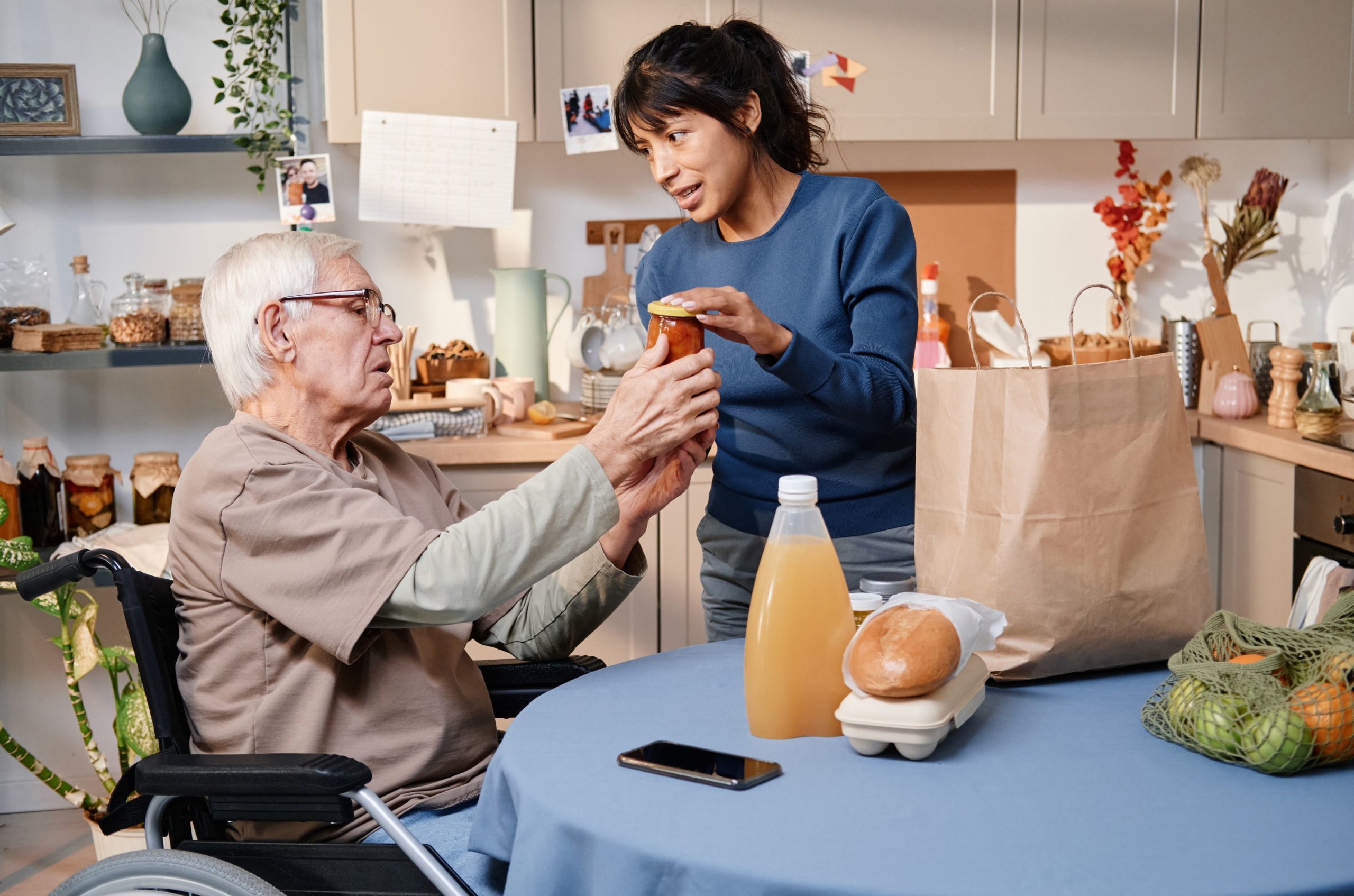
Healthcare Issues
Medications and Dementia
Over-the-counter medications are generally very safe, but for people with dementia some should be avoided because their ingredients can cause confusion, urinary retention, dry mouth, and constipation. They may also increase confusion and the risk of falls.
This category includes medications with diphenhydramine such as Tylenol PM and Benadryl. Other medications to avoid include cold medications such as Sudafed and Afrin. It is always a good idea to consult your doctor or pharmacist before giving a new medication to a person with dementia.
Managing Pain
- Patients with dementia may tell you they don’t hurt, but appear to be in pain.
- They may show pain as increased confusion, grimacing, moaning, yelling, rocking, avoiding use of an arm or leg, hitting, biting, or other unusual behaviors.
- If you are unsure, touch various parts of the body while asking, “Does it hurt here?”
Feeding When There Are Swallowing Problems
- To prevent choking, make sure the patient is sitting up to eat, and remains upright for at least 30 minutes after eating.
- Offer frequent, small meals instead of three big meals.
- Allow plenty of time for eating.
- If the patient feeds himself, you may need to remind him or guide his spoon to his mouth.
- Try small bites of chopped or blended food.
- Try soft foods that do not require much chewing such as oatmeal, applesauce, pudding, custard, gelatin, yogurt, or mashed potatoes.
- Thin liquids like water, tea, or juice may cause more coughing and choking than thick liquids such thick soup or milk shakes. Your nurse or speech therapist can teach you about thickening liquids.
- Wait for the patient to swallow each bite; you may need to remind them to swallow.
- Watch for “pocketing” food in the cheek.
- If the patient repeatedly bites the spoon, spits out the food, pockets food, closes their mouth, or turns their head, stop giving food and try again later.
- DO NOT try to force a person with swallowing difficulties to eat. This can result in choking and aspiration pneumonia (breathing food or fluid into the airway).
- Clean the mouth after eating.
Agitated or Restless Behavior
Some patients with advanced dementia will experience agitation or restlessness. It may appear as fidgeting, getting up, yelling, confused muttering, pulling at clothes or blankets, or other unusual behavior. There are six common triggers for agitation in patients with dementia:
- Fatigue: Many of us feel more irritable when tired and people with dementia are no exception. Did the patient get enough sleep last night? Has he had more activity than usual today? You can ask, “Would you like to rest now?”
- Change: People with dementia usually like routine—everything done the same way, at the same time, every day. What’s different today? Think of anything from new clothes, holiday decorations, caregiver, or a change in lunch time or bath time.
- Perception of loss: If the resident is reliving a loss such as the death of a loved one, empathy followed by distraction may work to divert the person’s attention. If the loss is the perception that something has been taken, help the patient to look for it. If the loss centers around money, it may help to put some loose change in the patient’s pocket so he can be reassured that he has his money or his wallet.
- Stimulus levels: Consider the environment. What is going on around the patient? Some people react negatively when there is too much noise, too many people, or too much activity. Others may tolerate this normally, but react badly when they are more tired. Consider turning off the television or radio. This might be a time to walk the patient to a quiet area or his or her room where they have a chance to feel calmer.
- Is it possible the patient is under-stimulated? Could he be bored or restless? Perhaps he or she needs physical activity such as a walk outside. Could she be lonely? Giving small tasks, such as folding towels, can help the patient fee useful and occupy his or her time.
- Excessive demands: With dementia comes the loss of the ability to process multiple thoughts at one time. People with dementia can’t multi-task or multi-think. So we need to be careful in our communications that we only make one brief request of them at a time. Saying “Brush your teeth, then you can get into your pajamas and ready for bed” may simply be too many concepts. You may be more successful breaking it into bite-sized chunks: “Now it’s time to brush your teeth.” When that is accomplished: “Now it’s time to put on your pajamas.”
- Physical stressors: Rule out pain: it could be a headache, a pebble in the shoe, a stomach ache, a urinary tract infection or clothes that are too tight. Look for signs of injury: red spots or bruises, limping, a bump on the head, or holding a body part. Look for signs of infections such as a rash, redness, runny nose, or strong-smelling urine. Could the patient be cold or hot and unable to tell you? Is he or she uncomfortable due to wet briefs?

